Category Archives: Western Pacific
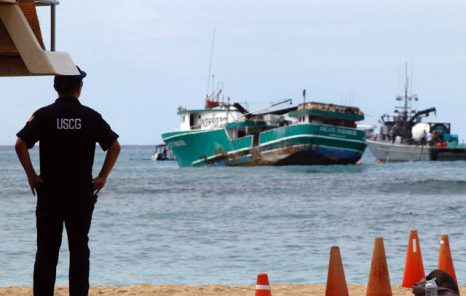
Coast Guard, crews work to remove grounded fishing boat off Waikiki
The U.S. Coast Guard and private contractors were back in Waikiki today trying to refloat and remove the 79-foot fishing vessel that was grounded a few hundred yards off Kaimana Beach in Waikiki late Tuesday. Today’s late-morning high tide was expected to help the effort and officials were expecting to get the ship free today. On Thursday, crews worked to safely remove fuel and other pollutants from the Pacific Paradise ahead of today’s effort to remove the vessel. click here to read the story 22:35
In Defense Of The Western Pacific Fishery Management Council
 Congressman Gregorio Kilili Camacho Sablan is to be commended for his advocacy for the people of the Commonwealth of the Northern Mariana Islands and as well as the interests of the marine environment. As Civil Beat reported last week, the lawmaker is demanding an investigation of the Hawaii-based Western Pacific Regional Fishery Management Council. However, I must differ with the congressman on his depiction of the council as being engaged in improper lobbying specifically in regards to the opposition to Marine Monuments that has aired during council meetings. (By Michael Markrich) click here to read the story 11:49
Congressman Gregorio Kilili Camacho Sablan is to be commended for his advocacy for the people of the Commonwealth of the Northern Mariana Islands and as well as the interests of the marine environment. As Civil Beat reported last week, the lawmaker is demanding an investigation of the Hawaii-based Western Pacific Regional Fishery Management Council. However, I must differ with the congressman on his depiction of the council as being engaged in improper lobbying specifically in regards to the opposition to Marine Monuments that has aired during council meetings. (By Michael Markrich) click here to read the story 11:49
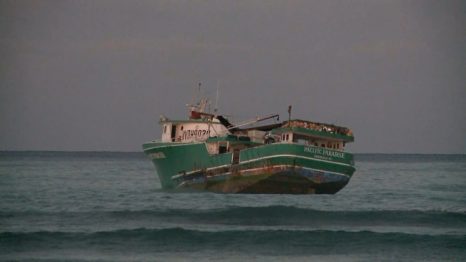
Coast Guard, HFD rescue 20 fishermen from aground vessel off Honolulu
Twenty fishermen were transported to shore from an aground vessel less than a half mile off Honolulu early Wednesday morning. Honolulu Fire Department Jet Ski crews transported fishermen from the vessel to a Coast Guard 45-foot Response Boat-Medium for further transport to awaiting emergency responders at Ala Wai Harbor. A Coast Guard MH-65 helicopter crew hoisted two of the fishermen and the master of the vessel and transported them to Honolulu airport. Watchstanders at Coast Guard Sector Honolulu received three reports of the 79-foot commercial fishing vessel Pacific Paradise grounded off Diamond Head click here to read the story 10:58
Lawmaker Wants Checks on Presidential Power to Set Aside Public Land
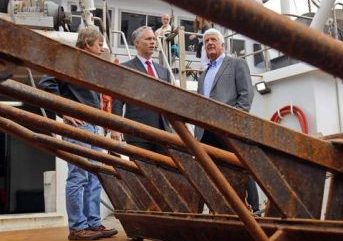 A congressional committee will consider a bid to restrict the president’s ability to use the Antiquities Act to set aside vast swaths of public land for conservation purposes. U.S. Rep. Rob Bishop, Utah Republican and vocal opponent of federal control of public lands, introduced House Resolution 3990 on Friday, which would trigger environmental reviews and congressional approvals if a U.S. president uses the Antiquities Act to set aside more than 640 acres less than 50 miles away from another national monument. click here to read the story 12:30
A congressional committee will consider a bid to restrict the president’s ability to use the Antiquities Act to set aside vast swaths of public land for conservation purposes. U.S. Rep. Rob Bishop, Utah Republican and vocal opponent of federal control of public lands, introduced House Resolution 3990 on Friday, which would trigger environmental reviews and congressional approvals if a U.S. president uses the Antiquities Act to set aside more than 640 acres less than 50 miles away from another national monument. click here to read the story 12:30
Management of Pacific fisheries at WESPAC’s committee meeting
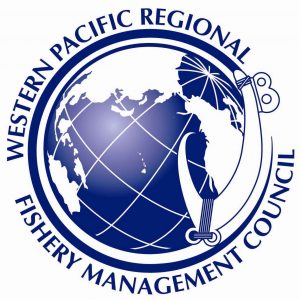 Pacific scientists will meet in Lihue, Kauai, from Oct. 10 to 12 to provide recommendations on managing fisheries in Hawaii, American Samoa, Guam, the CNMI, and the US Pacific Remote Islands Areas. The meeting of the Scientific and Statistical Committee of the Western Pacific Regional Fishery Management Council is open to the public. The council will consider the recommendations of the SSC and its other advisory bodies at its 171st meeting on Oct. 17-19 in Utulei, American Samoa. The major agenda items include the following: click here to read the story 11:10
Pacific scientists will meet in Lihue, Kauai, from Oct. 10 to 12 to provide recommendations on managing fisheries in Hawaii, American Samoa, Guam, the CNMI, and the US Pacific Remote Islands Areas. The meeting of the Scientific and Statistical Committee of the Western Pacific Regional Fishery Management Council is open to the public. The council will consider the recommendations of the SSC and its other advisory bodies at its 171st meeting on Oct. 17-19 in Utulei, American Samoa. The major agenda items include the following: click here to read the story 11:10
Congressman Blasts Fishery Council For ‘Improper Lobbying’ – asks for an investigation
 The Honolulu-based Western Pacific Regional Fishery Management Council was harshly criticized on Capitol Hill last week over allegations of anti-environmental lobbying and secretiveness. U.S. Rep. Gregorio Kilili Camacho Sablan, a Democrat who represents the Northern Marianas Islands, blasted the council known as Wespac during a hearing before the Water, Power and Oceans Subcommittee. Sablan asked for an investigation of the 16-member council’s activities, which he said include “improper lobbying,” organizing efforts to undermine environmental protections and unspecified financial conflicts of interest. click here to read the story 11:09
The Honolulu-based Western Pacific Regional Fishery Management Council was harshly criticized on Capitol Hill last week over allegations of anti-environmental lobbying and secretiveness. U.S. Rep. Gregorio Kilili Camacho Sablan, a Democrat who represents the Northern Marianas Islands, blasted the council known as Wespac during a hearing before the Water, Power and Oceans Subcommittee. Sablan asked for an investigation of the 16-member council’s activities, which he said include “improper lobbying,” organizing efforts to undermine environmental protections and unspecified financial conflicts of interest. click here to read the story 11:09
Legislative Hearing on 4 Fishery Bills – Tuesday, September 26, 2017 10:00 AM
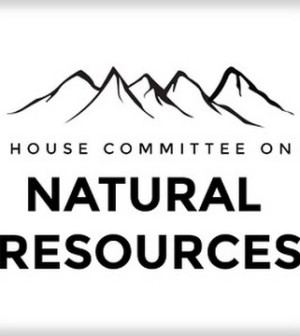 H.R. 200 (Rep. Don Young), To amend the Magnuson-Stevens Fishery Conservation and Management Act to provide flexibility for fishery managers and stability for fishermen, and for other purposes. click here H.R. 2023 (Rep. Garret Graves), To modernize recreational fisheries management Modernizing Recreational Fisheries Management Act of 2017 click here H.R. 3588 (Rep. Garret Graves), To amend the Magnuson-Stevens Fishery Conservation and Management Act to provide for management of red snapper in the Gulf of Mexico, and for other purposes. click here RED SNAPPER Act Discussion Draft of H.R. ____ (Rep. Jared Huffman), To amend and reauthorize the Magnuson-Stevens Fishery Conservation and Management Act, and for other purposes. click here To read the notice, click here 12:29
H.R. 200 (Rep. Don Young), To amend the Magnuson-Stevens Fishery Conservation and Management Act to provide flexibility for fishery managers and stability for fishermen, and for other purposes. click here H.R. 2023 (Rep. Garret Graves), To modernize recreational fisheries management Modernizing Recreational Fisheries Management Act of 2017 click here H.R. 3588 (Rep. Garret Graves), To amend the Magnuson-Stevens Fishery Conservation and Management Act to provide for management of red snapper in the Gulf of Mexico, and for other purposes. click here RED SNAPPER Act Discussion Draft of H.R. ____ (Rep. Jared Huffman), To amend and reauthorize the Magnuson-Stevens Fishery Conservation and Management Act, and for other purposes. click here To read the notice, click here 12:29
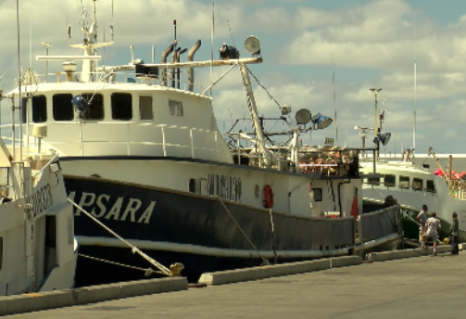
State of Hawaii wants to triple fees for commercial marine licenses
The state is proposing to triple by cost of commercial marine license fees by 2018. The $50 fee would jump to $100 initially, then to $150 on Jan. 1, 2018. “Commercial license fees haven’t increased in nearly 20 years, so we’re updating the fee schedule to reflect our current needs,” said Bruce Anderson, administrator of the state’s Division of Aquatic Resources. “The increased revenues will fund badly needed improvements to online reporting and licensing web sites, to better serve the fishing public.” The state is also proposing changes that would affect dealers who buy marine life directly from commercial fishers. A series of meetings have been scheduled for the public to weigh in: click here to read the details 13:46
Zinke tells Trump – Shrink at least 4 national monuments and modify a half-dozen others
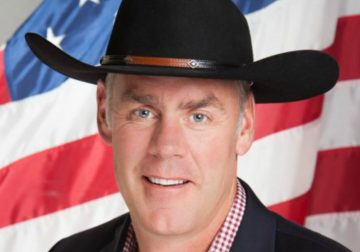 The secretary’s set of recommendations also would change the way all 10 targeted monuments are managed. It emphasizes the need to adjust the proclamations to address concerns of local officials or affected industries, saying the administration should permit “traditional uses” now restricted within the monuments’ boundaries, such as grazing, logging, coal mining and commercial fishing.,, The White House is reviewing the recommendations and has not reached a final decision on them. click here to read the story 08:58
The secretary’s set of recommendations also would change the way all 10 targeted monuments are managed. It emphasizes the need to adjust the proclamations to address concerns of local officials or affected industries, saying the administration should permit “traditional uses” now restricted within the monuments’ boundaries, such as grazing, logging, coal mining and commercial fishing.,, The White House is reviewing the recommendations and has not reached a final decision on them. click here to read the story 08:58
Trade groups want 10-year requirement removed from Magnuson-Stevens Act
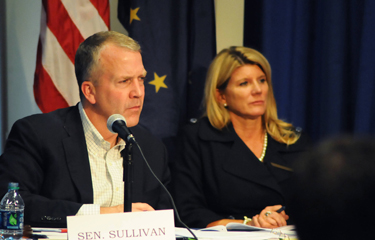 As Congress gets ready to address reauthorizing the Magnuson-Stevens Act, representatives from commercial fishing interests are urging lawmakers to revisit some of the current law’s regulations they feel have hindered the industry. In particular, they’re urging officials to do away with language that caps rebuilding plans for overfished species to 10 years. It’s an arbitrary figure that has too rigidly applied across all federally managed species, said Lori Steele, the executive director of the West Coast Seafood Processors Association, at a hearing Tuesday of the Senate Committee on Commerce, Science and Transportation’s Subcommittee on Oceans, Atmosphere, Fisheries and Coast Guard. click here to read the story 10:50
As Congress gets ready to address reauthorizing the Magnuson-Stevens Act, representatives from commercial fishing interests are urging lawmakers to revisit some of the current law’s regulations they feel have hindered the industry. In particular, they’re urging officials to do away with language that caps rebuilding plans for overfished species to 10 years. It’s an arbitrary figure that has too rigidly applied across all federally managed species, said Lori Steele, the executive director of the West Coast Seafood Processors Association, at a hearing Tuesday of the Senate Committee on Commerce, Science and Transportation’s Subcommittee on Oceans, Atmosphere, Fisheries and Coast Guard. click here to read the story 10:50
The Magnuson Stevens Act and its Ten Year Rebuilding Timeline: Science or Fiction? By Meghan Lapp – click here to read the article
Dongwon chairman had direct control in price fixing say lawsuits
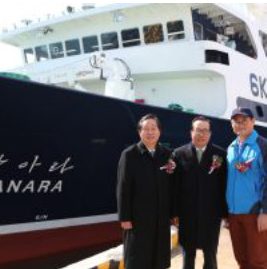 Dongwon Enterprise chairman Jae-chul Kim, a legend in the tuna sector, directly controlled US subsidiary and tuna brand Starkist Co during the years of the alleged price-fixing conspiracy, a new wave of class-action lawsuits against the big players in the sector claim. Two lawsuits filed on Aug. 29 by retailers Moran Foods and Dollar General Corporation and a third filed on August 30 from Krasdale Foods are the latest to make allegations that the involvement in a price fixing conspiracy went right to the top at the South Korean firm, which owns US-based Starkist via its Dongwon Industries operation. click here to read the story 18:00
Dongwon Enterprise chairman Jae-chul Kim, a legend in the tuna sector, directly controlled US subsidiary and tuna brand Starkist Co during the years of the alleged price-fixing conspiracy, a new wave of class-action lawsuits against the big players in the sector claim. Two lawsuits filed on Aug. 29 by retailers Moran Foods and Dollar General Corporation and a third filed on August 30 from Krasdale Foods are the latest to make allegations that the involvement in a price fixing conspiracy went right to the top at the South Korean firm, which owns US-based Starkist via its Dongwon Industries operation. click here to read the story 18:00
Hearing! 2:30 p.m. on Tuesday – MSA Reauth – Oversight of Fisheries Management Successes and Challenges
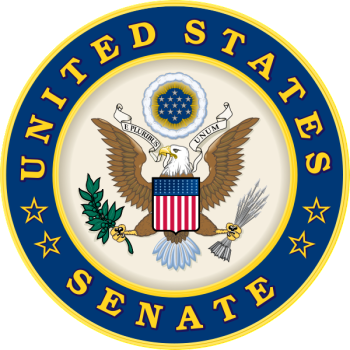 U.S. Sen. Dan Sullivan (R-Alaska), chairman of the Subcommittee on Oceans, Atmosphere, Fisheries, and Coast Guard, will convene the hearing titled “Reauthorization of the Magnuson-Stevens Fishery Conservation and Management Act: Oversight of Fisheries Management Successes and Challenges” at 2:30 p.m. on Tuesday, September 12, 2017. The hearing is the third of the series and will focus on the perspectives of commercial, charter, and recreational fishermen on the state of our nation’s fishery laws. click here to read the press release This hearing will take place in Russell Senate Office Building, Room 253. Witness testimony, opening statements, and a live video of the hearing will be available on www.commerce.senate.gov. 23:24
U.S. Sen. Dan Sullivan (R-Alaska), chairman of the Subcommittee on Oceans, Atmosphere, Fisheries, and Coast Guard, will convene the hearing titled “Reauthorization of the Magnuson-Stevens Fishery Conservation and Management Act: Oversight of Fisheries Management Successes and Challenges” at 2:30 p.m. on Tuesday, September 12, 2017. The hearing is the third of the series and will focus on the perspectives of commercial, charter, and recreational fishermen on the state of our nation’s fishery laws. click here to read the press release This hearing will take place in Russell Senate Office Building, Room 253. Witness testimony, opening statements, and a live video of the hearing will be available on www.commerce.senate.gov. 23:24
Countries Pledge To Recover Dwindling Pacific Bluefin Tuna Population
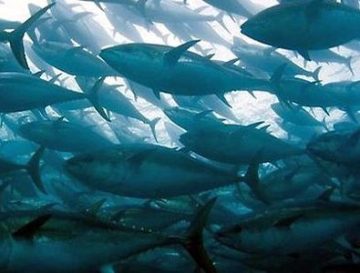 In a joint meeting Friday in Busan, South Korea, the two groups that manage Pacific bluefin tuna reached a historic long-term agreement that would put the species on the path to recovery. The Western and Central Pacific Fisheries Commission and the Inter-American Tropical Tuna Commission agreed to take steps to rebuild the population to 20 percent of historic levels by 2034 — a sevenfold increase from current levels. Stocks of Pacific bluefin have fallen to 2.6 percent of their historic size, with countries like Mexico, Japan, Korea and the U.S. exceeding fishing quotas within the last two years. click here to read the story 17:02
In a joint meeting Friday in Busan, South Korea, the two groups that manage Pacific bluefin tuna reached a historic long-term agreement that would put the species on the path to recovery. The Western and Central Pacific Fisheries Commission and the Inter-American Tropical Tuna Commission agreed to take steps to rebuild the population to 20 percent of historic levels by 2034 — a sevenfold increase from current levels. Stocks of Pacific bluefin have fallen to 2.6 percent of their historic size, with countries like Mexico, Japan, Korea and the U.S. exceeding fishing quotas within the last two years. click here to read the story 17:02
Fishing Vessel Owner Convicted for Oil and Garbage Offenses Off American Samoa
 A fishing vessel company that operated in and around American Samoa was convicted and sentenced today for maintaining false and incomplete records relating to the discharge of oil and garbage, announced Acting Assistant Attorney General Jeffrey H. Wood of the Environment and Natural Resources Division and United States Attorney Channing D. Phillips. The company, Yuh Fa Fishery (Vanuatu) Co. Ltd., owned the Fishing Vessel (“F/V”) Yuh Fa No. 201, the vessel that was responsible for the pollution. click here to read the story 16:13
A fishing vessel company that operated in and around American Samoa was convicted and sentenced today for maintaining false and incomplete records relating to the discharge of oil and garbage, announced Acting Assistant Attorney General Jeffrey H. Wood of the Environment and Natural Resources Division and United States Attorney Channing D. Phillips. The company, Yuh Fa Fishery (Vanuatu) Co. Ltd., owned the Fishing Vessel (“F/V”) Yuh Fa No. 201, the vessel that was responsible for the pollution. click here to read the story 16:13
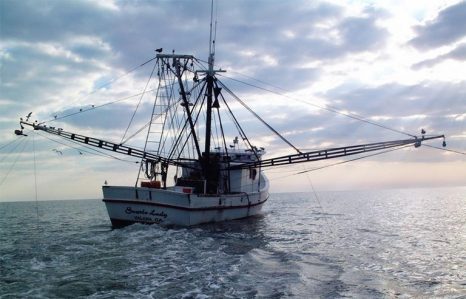
NIOSH regional reports highlight top dangers in commercial fishing industry
Vessel disasters and falls overboard are the primary hazards experienced by workers in commercial fishing – an industry with a fatality rate 29 times higher than the national average – according to a recent NIOSH analysis of four U.S. regions. NIOSH reviewed overall commercial fishing fatalities in Alaska, the Gulf of Mexico, and the East and West Coasts from 2010 to 2014. Researchers found that 184 fatalities occurred in the four regions: Alaska recorded 45, the West Coast had 30, the East Coast reported 60 and the Gulf of Mexico experienced 49. Vessel disasters (capsizes, fires, groundings, sinking) accounted for the most deaths with 80, followed by falls overboard with 53. Other categories included onboard, onshore and diving. click here to read the story 23:24
Bycatch Reduction Engineering Program – 2017 Awards
 NOAA Fisheries has awarded more than $2.3 million to partners around the country to support innovative bycatch reduction research projects through its . Bycatch of various species–fish, marine mammals, or turtles–can have significant biological, economic, and social impacts. Preventing and reducing bycatch is a shared goal of fisheries managers, the fishing industry, and the environmental community. click here to read the notice 14:10
NOAA Fisheries has awarded more than $2.3 million to partners around the country to support innovative bycatch reduction research projects through its . Bycatch of various species–fish, marine mammals, or turtles–can have significant biological, economic, and social impacts. Preventing and reducing bycatch is a shared goal of fisheries managers, the fishing industry, and the environmental community. click here to read the notice 14:10
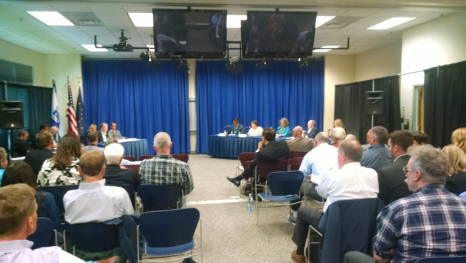
Fish pie – Everyone wants a piece
Representatives of the haves and have-nots of American ocean fisheries gathered in a packed college classroom here on Wednesday to offer Sen. Dan Sullivan, R-Alaska, their ideas on what he could do with the Magnuson-Stevens Fisheries Conservation and Management Act. The now 40-year-old federal fisheries legislation is the legacy of the late and revered Alaska Sen.Ted Stevens.,,, And there is no doubt the MSA has problems when it comes to dealing with recreational fishing. Anglers, charter-boat operators, commercial fishermen and environmental groups are at the moment all in a Gulf of Mexico scrum fighting over red snapper. It is in many ways a tussle that almost makes the long-running fish war in Cook Inlet look tame. click here to read the story 08:25
Trump team nears decision on national monuments
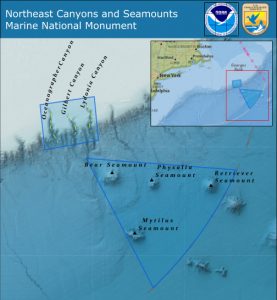 As Interior Secretary Ryan Zinke approaches the 24 August deadline for his recommendations to President Donald Trump on whether to alter dozens of national monuments, conservation proponents say it remains all but impossible to predict which sites the administration could target for reductions or even wholesale elimination.,,, Obama created the first Atlantic marine monument in 2016 when he designated nearly 5,000 square miles for preservation off the coast of Massachusetts.,, The Boston Globe reported that Zinke appeared sympathetic while meeting with about 20 representatives of New England’s seafood industry. “When your area of access continues to be reduced and reduced … it just makes us noncompetitive,” Zinke said at the time. “The president’s priority is jobs, and we need to make it clear that we have a long-term approach to make sure that fishing fleets are healthy.” click here to read the story 11:38
As Interior Secretary Ryan Zinke approaches the 24 August deadline for his recommendations to President Donald Trump on whether to alter dozens of national monuments, conservation proponents say it remains all but impossible to predict which sites the administration could target for reductions or even wholesale elimination.,,, Obama created the first Atlantic marine monument in 2016 when he designated nearly 5,000 square miles for preservation off the coast of Massachusetts.,, The Boston Globe reported that Zinke appeared sympathetic while meeting with about 20 representatives of New England’s seafood industry. “When your area of access continues to be reduced and reduced … it just makes us noncompetitive,” Zinke said at the time. “The president’s priority is jobs, and we need to make it clear that we have a long-term approach to make sure that fishing fleets are healthy.” click here to read the story 11:38
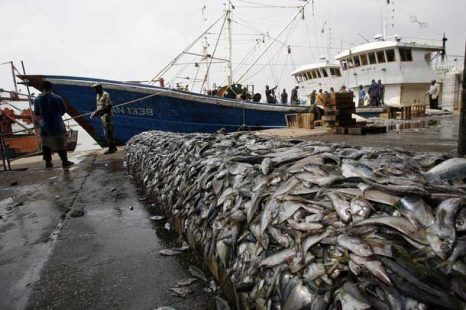
Fish Stocks And Our Balance Of Payments
Our balance of payments is overly burdened by our consumption of seafood: We import approximately 90% of the seafood that we eat. Given our natural resources, we should be net exporters of seafood. The total value of edible and non-edible fishery imports in the United States was $35.8 billion in 2016. The total value of edible and non-edible exports was $21.3 billion. The imbalance does not imply only a shipment of dollars abroad. It also implies a number of jobs exported, a number of jobs that could be created in this country, were we not to import that much more seafood than we export.,,, The reason for the imbalance in our accounts with other nations is not due to lack of fish in our waters. Not to put too fine a point on it, the imbalance is due to rules and regulations imposed by our National Marine Fisheries Service (NMFS) that prevent our fishermen from catching fish. click here to read the article by Carmine Gorga 09:21
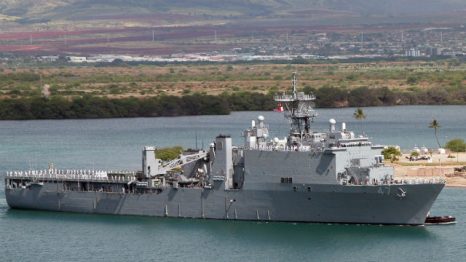
San Diego-Based USS Rushmore Departs on Fisheries Enforcement Mission
The San Diego-based amphibious dock landing ship USS Rushmore was steaming toward the South Pacific Tuesday to provide enforcement of fisheries around 10 island nations, according to the Navy.,, “Our crew is very excited to take part in the OMSI mission,” said Cmdr. John Ryan, commanding officer of Rushmore. “Working in tandem with the U.S. Coast Guard is a new experience for us, which will continue to demonstrate how the extensive range of U.S. Navy assets provides critical support to the embarked boarding teams in their mission of enforcing fishery laws.” click here to read the story 08:28
Hawaiʻi nearshore fishery provides big benefits
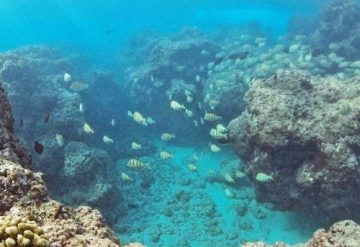 Small-scale fisheries support the well-being of millions of people around the world—even in a well-developed economy such as Hawaiʻi’s, they provide important economic as well as social benefits. The total annual monetary value of the fishery is approximately $10.3 to $16.4 million. The non-commercial fishery in particular provides huge benefits to the community—non-commercial catch is around three times reported commercial catch and is worth $4.2 to $10 million more annually. However, the full benefits to Hawaiʻi also include the potential to provide over 7 million meals a year as well as less tangible but just as important benefits such as the perpetuation of culture, community cohesion and sharing knowledge with the next generation. click here to read the story 20:22
Small-scale fisheries support the well-being of millions of people around the world—even in a well-developed economy such as Hawaiʻi’s, they provide important economic as well as social benefits. The total annual monetary value of the fishery is approximately $10.3 to $16.4 million. The non-commercial fishery in particular provides huge benefits to the community—non-commercial catch is around three times reported commercial catch and is worth $4.2 to $10 million more annually. However, the full benefits to Hawaiʻi also include the potential to provide over 7 million meals a year as well as less tangible but just as important benefits such as the perpetuation of culture, community cohesion and sharing knowledge with the next generation. click here to read the story 20:22
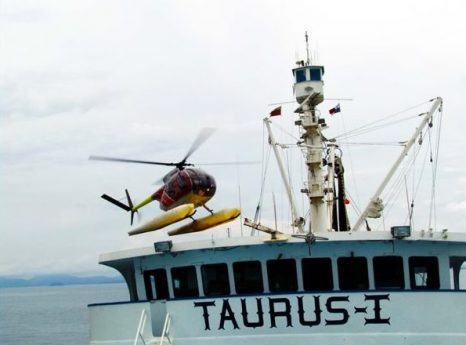
Let’s Go Fishing – Tuna Boat Ops
Since tuna is such a popular food worldwide and commands a high price, the use of expensive helicopters is cost effective for commercial tuna boats that use large nets called purse seines. Helicopters are extremely useful for spotting tuna, since these fish gather in large schools or shoals to cooperatively hunt vast areas for smaller fish prey. Helicopters takeoff early in the morning and fly long hours before parking on the ship overnight. R-22, R-44, B206, and MD500 are the most commonly used helicopters for this type of fishing. It’s not unusual for pilots with relatively few hours of flying time to join tuna operations. These jobs allow pilots to accumulate hours quickly, earn a decent paycheck, and work with fishing crew members from around the world while visiting exotic ports of call. click here to read the story 11:04
Pacific bluefin tuna not considered engangered
 The National Oceanic and Atmospheric Administration Fisheries branch has determined that Pacific bluefin tuna are not endangered and do not need protection under the federal Endangered Species Act. The determination was announced Monday by Chris Yates, assistant regional administrator for protected resources, NOAA Fisheries West Coast Region, in response to a petition from activists and environmental groups across the nation asking the Trump administration to list Pacific bluefin tuna as endangered.,, A scientific review team found that the population is large enough to avoid the risks associated with a small population, such as a year with low survival, and that Pacific bluefin has recovered from similarly low levels in the past. click here to read the story 09:17
The National Oceanic and Atmospheric Administration Fisheries branch has determined that Pacific bluefin tuna are not endangered and do not need protection under the federal Endangered Species Act. The determination was announced Monday by Chris Yates, assistant regional administrator for protected resources, NOAA Fisheries West Coast Region, in response to a petition from activists and environmental groups across the nation asking the Trump administration to list Pacific bluefin tuna as endangered.,, A scientific review team found that the population is large enough to avoid the risks associated with a small population, such as a year with low survival, and that Pacific bluefin has recovered from similarly low levels in the past. click here to read the story 09:17
US congressman wants imported seafood tracked like domestic products
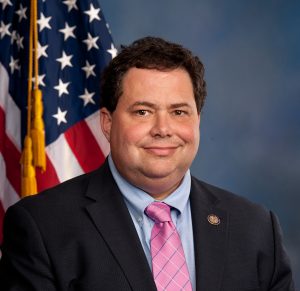 For the second straight congressional session, a representative from Texas has introduced a bill he claims would level the playing field between American fishermen and their foreign counterparts. Late last month, U.S. Rep. Blake Farenthold filed the “Protecting Honest Fishermen Act of 2017.” The legislation calls for all seafood sold in America to be traceable from the time it was caught to the time it was served. Under current regulations, importers do not need to provide the same level of information as domestic fishermen. “American fishermen shouldn’t be at a disadvantage to foreign fishermen especially here in the United States,” the Republican said in a statement. click here to read the story 17:44
For the second straight congressional session, a representative from Texas has introduced a bill he claims would level the playing field between American fishermen and their foreign counterparts. Late last month, U.S. Rep. Blake Farenthold filed the “Protecting Honest Fishermen Act of 2017.” The legislation calls for all seafood sold in America to be traceable from the time it was caught to the time it was served. Under current regulations, importers do not need to provide the same level of information as domestic fishermen. “American fishermen shouldn’t be at a disadvantage to foreign fishermen especially here in the United States,” the Republican said in a statement. click here to read the story 17:44
Oversight Hearing “Exploring the Successes and Challenges of the Magnuson-Stevens Act” Wednesday, July 19, 2017 2:00 PM
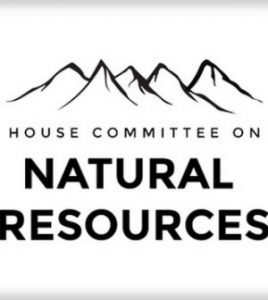 On Wednesday, July 19, 2017, at 2:00 p.m., in Room 1324 Longworth House Office Building, the Subcommittee on Water, Power and Oceans will hold an oversight hearing titled “Exploring the Successes and Challenges of the Magnuson-Stevens Act.” Witnesses are Mr. Jeff Kaelin, Government Relations, Lund’s Fisheries, Inc. Cape May, New Jersey. Mr. Sean Martin, President, Hawaii Longline Association, Honolulu, Hawaii. Mr. Nick Wiley, Executive Director, Florida Fish and Wildlife Conservation Commission, Tallahassee, Florida. Mr. Charles Witek, Recreational Angler and Outdoor Writer, West Babylon, New York. click here at 14:00 Wednesday to watch the proceeding. If you need further information, please contact Calvin Frauenfelder, Clerk, Subcommittee on Water, Power and Oceans at (202) 225-8331.
On Wednesday, July 19, 2017, at 2:00 p.m., in Room 1324 Longworth House Office Building, the Subcommittee on Water, Power and Oceans will hold an oversight hearing titled “Exploring the Successes and Challenges of the Magnuson-Stevens Act.” Witnesses are Mr. Jeff Kaelin, Government Relations, Lund’s Fisheries, Inc. Cape May, New Jersey. Mr. Sean Martin, President, Hawaii Longline Association, Honolulu, Hawaii. Mr. Nick Wiley, Executive Director, Florida Fish and Wildlife Conservation Commission, Tallahassee, Florida. Mr. Charles Witek, Recreational Angler and Outdoor Writer, West Babylon, New York. click here at 14:00 Wednesday to watch the proceeding. If you need further information, please contact Calvin Frauenfelder, Clerk, Subcommittee on Water, Power and Oceans at (202) 225-8331.
Hearing Memorandum details, click here 19:35
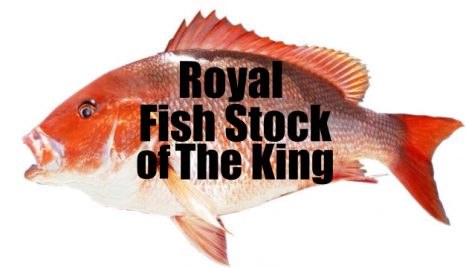
Brad Gentner: It’s time to rethink ‘catch shares’
Catch shares in marine fisheries is a concept unfamiliar to most people, and it is probably completely alien to most hunters and anglers in this country. It is a system of wildlife management that bestows some percentage of a public marine resource, like red snapper in the Gulf of Mexico, to private businesses for free, to use and sell for their own profit. It was thought that by giving away ownership rights to individuals, the fishery would consolidate and ultimately become easier to manage. While the same number of fish would be caught, the benefits of funneling access to the resource through fewer entities was thought to remove some of the uncertainty in the industry and thus would be worth the price of privatizing a public resource for free. While catch shares are still the darling of some fisheries economists, there is a growing backlash against this management tool worldwide for a variety of reasons. At the heart of these complaints is fleet and wealth consolidation, extraction of public wealth for private profit, and failure to capitalize share-cost into production costs. click here to read the op-ed 21:46


































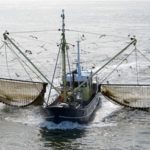

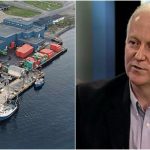
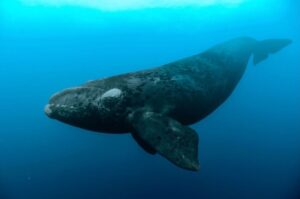
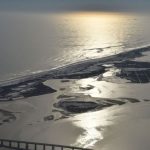

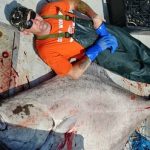
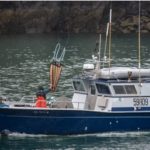




NMFS: Public Comment Period Opens – Review and Streamline Regulatory Processes and Reduce Regulatory Burden
Share this post